All Stories
-
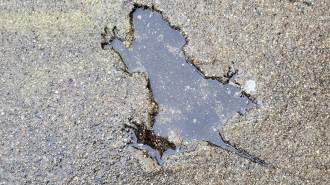 Animals
AnimalsThe viral Chicago ‘Rat Hole’ almost certainly wasn’t made by a rat
Researchers used methods from paleontology to analyze the quirky local landmark, created when a rodent of a certain size fell into wet concrete.
By Amanda Heidt -
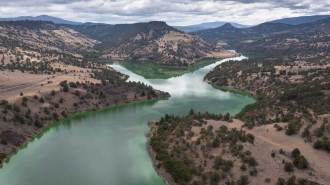 Environment
EnvironmentHow a Yurok family played a key role in the world’s largest dam removal project
In The Water Remembers, Amy Bowers Cordalis shares her family’s account of the Indigenous-led fight to restore the Klamath River in the Pacific Northwest.
By Aina Abell -
 Materials Science
Materials ScienceNew wetsuit designs offer a layer of protection against shark bites
By weaving Kevlar or polyethylene nanofibers into standard neoprene in wetsuits, researchers found ways to limit injury during rare encounters with sharks.
By Carly Kay -
 Climate
ClimateCoral collapse signals Earth’s first climate tipping point
The global die-off of coral reefs signals a critical shift in Earth’s climate system with global environmental consequences along with economic ones.
- Astronomy
Astronomers saw a rogue planet going through a rapid growth spurt
The growth spurt hints that the free-floating object evolves like a star, providing clues about rogue planets’ mysterious origins.
-
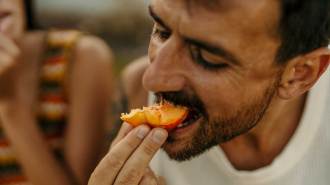 Neuroscience
NeuroscienceBrain scans reveal where taste and smell become flavor
The findings show the insula fuses taste and certain smells into the sensation of flavor.
-
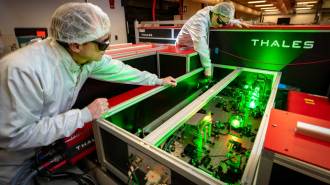 Particle Physics
Particle PhysicsLasers made muon beams, no massive accelerator needed
The advance hints at the possibility of portable muon-making devices that could help peer through solid materials for hidden contraband.
-

Worlds Apart Crossword
Solve our latest interactive crossword. We'll publish science-themed crosswords and math puzzles on alternating months.
By August Miller and Shannon Rapp -
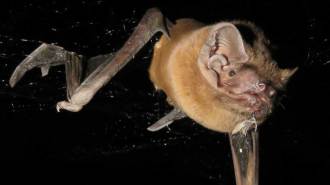 Animals
AnimalsMic’d bats reveal midnight songbird attacks
Sensor data reveal greater noctule bats chasing, catching and chewing on birds during high-altitude, nighttime hunts.
-
 Animals
AnimalsToy-obsessed dogs give clues to addictive behaviors
Some dogs love playing with toys so intensely they can’t stop—offering scientists a window into behavioral addictions.
-
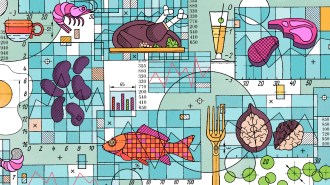 Health & Medicine
Health & MedicineYou’re probably eating enough protein, but maybe not the right mix
Protein is having a moment. But even if most people are eating enough protein, studies suggest they may not be eating the right mix.
By Sujata Gupta -
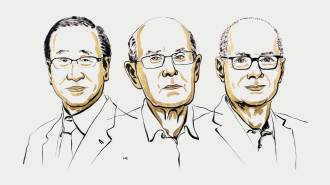 Chemistry
ChemistryChemistry that works like Hermione’s magic handbag wins a 2025 chemistry Nobel
Richard Robson, Susumu Kitagawa and Omar Yaghi developed metal-organic frameworks, structures that can collect water from air, capture CO₂ and more.
By Meghan Rosen